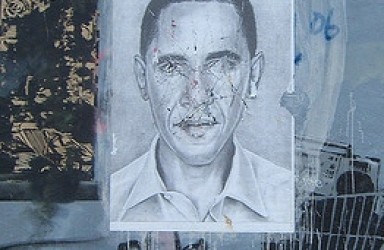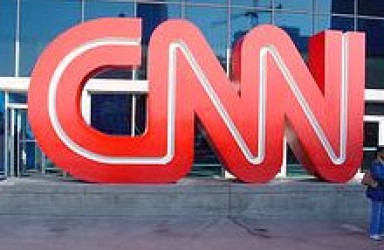The US Healthcare Debate: A History and Implications
There are a wide range of factors that contribute to the difficulties faced by the Obama administration in passing health care reform. Understanding public perception of the state of the health care industry in the United States is essential in explaining the difficulties faced by the Obama administration in passing reform.
Bush and Blair: the impact of a special relationship on national interests
This dissertation argues that the ‘special’ relationship shared between Tony Blair and George W Bush while they presided over their respective countries’ had a greater effect on their own individual pursuit of national interests than conventionally acknowledged.
The Intensification of US Efforts to Build an Atomic Bomb
The mushroom cloud has retrospectively obscured the context in which American leaders took the decision to build and use the atomic bomb. The principle rationale behind the intensification of the Manhattan Project in the first half of 1945 was the desire of the US bureaucracy to end the war in the Pacific before the planned invasion of the Japanese mainland in November 1945.
US Foreign Policy in Europe beween the end of the Cold War and 9/11
The American-Russian relationship is best described as going from Cold War to Cold Peace, as articulated by the then Russian President Yeltsin. The 1990s essentially brought about a period in which the US sought to manage the uncertainties that the new world order was presenting.
US Navy and Chinese Navy: Partners or Rivals?
Because of the deep mutual mistrust from both sides, especially the US concern over China’s military build-up, friction and cooperation will coexist in the development of the China-US naval relationship. Only when political mutual trust reaches a high level, can the military relationship stride forward beyond the stop and go cycle of the last 30 years.
Are Americans From Mars and Europeans From Venus?
In his book ‘Paradise and Power’, Robert Kagan states that since the falling of Soviet Russia, the apparent cracks between American and European psyches have become more apparent. As such, questions have been raised as to whether US-EU ideals were ever on the same axis.
To what extent was the US military’s attitude towards the media during the 1991 Gulf War a product of its experience in Vietnam?
The minds and hearts of US citizens were lost because the media coverage of the Vietnam War, watched in millions of American homes, was uncensored, straightforward and highlighted all the cruelties of the conflict. The media coverage of the 1991 Gulf War was entirely different.
Why was so much at stake in Cuba in 1962?
The Cuban missile crisis of October 1962 constituted a classic foreign policy dilemma between the United States and the Soviet Union and was one of the most dangerous confrontations of the Cold War. This essay gives an overview of the complexity of the thirteen-day crisis. It shows that the balance of power, the credibility of the two superpowers and the future of Berlin were at stake, and makes clear how close it actually came to a nuclear showdown.
EU-US intelligence sharing post 9/11: predictions for the future
This research seeks to explore whether, and to what extent the intelligence sharing has increased between the US and the EU member states post 9/11, and to offer predictions on future trends. Different potential scenarios in future intelligence cooperation are presented, based on the threat of Islamic terrorism to the US and EU.
Water wars? The Role of Hegemony in the Jordan River, Nile River and Columbia River Basins
Predictions of “water wars” have become an important and even customary part of global diplomatic discourse. In 1995, the World Bank’s vice president for environmentally sustainable development famously asserted “if the wars of this century were fought over oil, the wars of the next century will be fought over water”. What is the truth about transboundary water and the potential for war?










